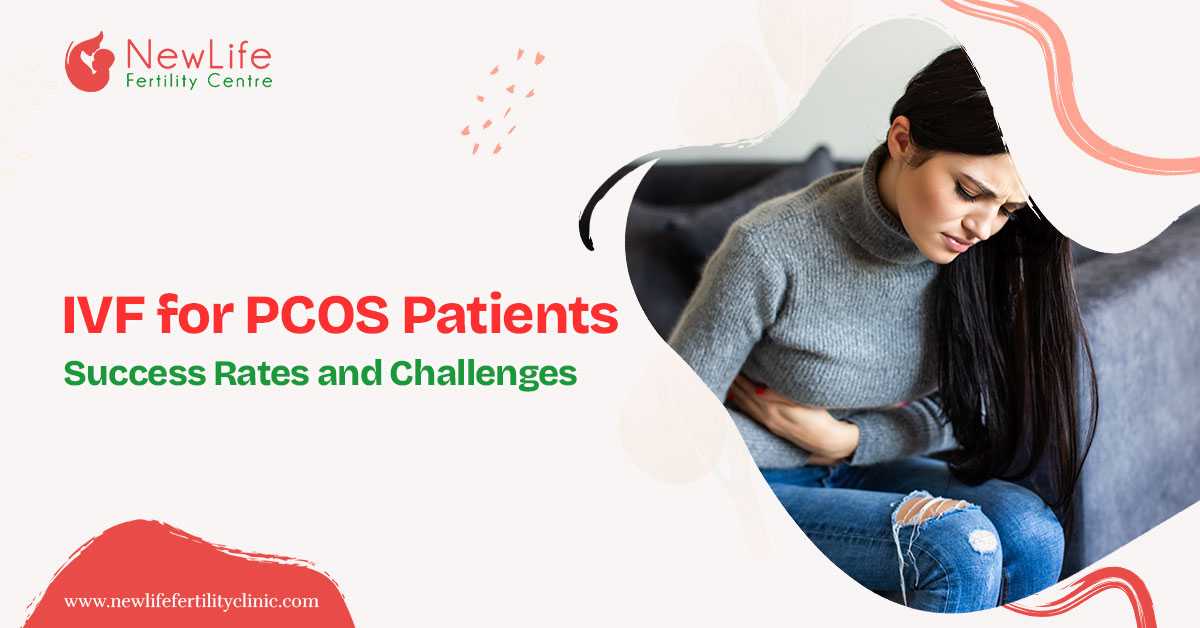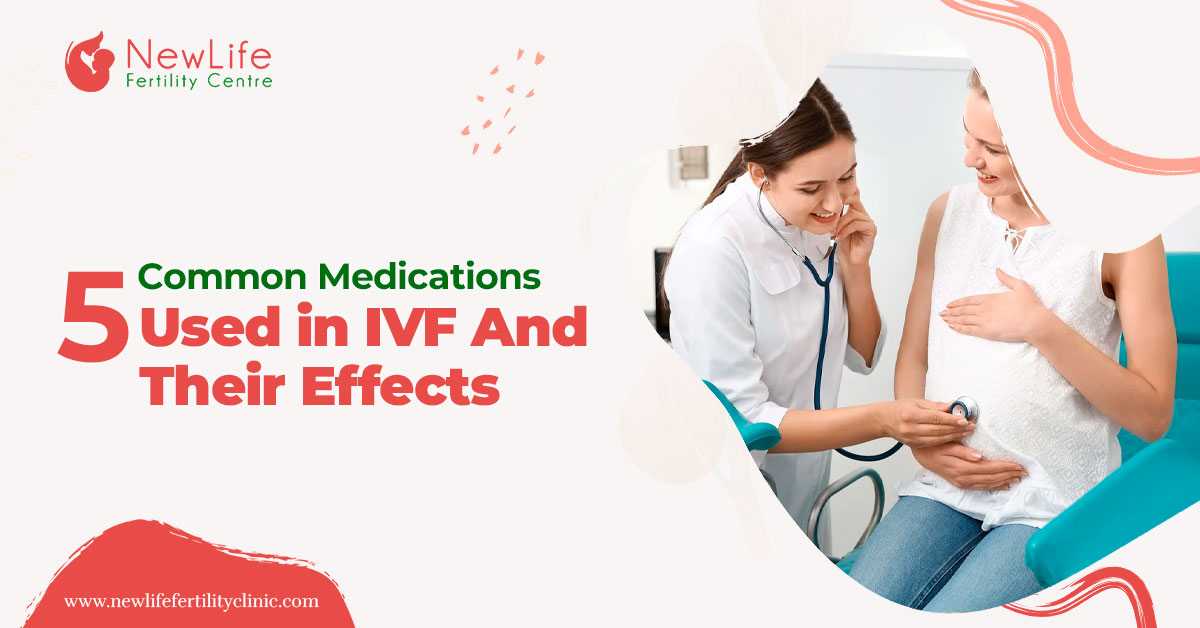You might have heard about the medicines used in In Vitro Fertilization (IVF) if you're going to begin the process. The list of medications and all the new terminology might be overwhelming to many individuals. And that’s natural to feel that way. IVF drugs are essential for supporting your body in creating healthy eggs, getting ready for fertilization, and promoting an early pregnancy.
This reading helps you understand how IVF medicines work, five common medicines, and what to expect when taking them. In order to give you more confidence regarding your therapy, we will also discuss potential side effects in easy terms.
1. Clomiphene Citrate (Clomid)
This medication is intended to stimulate the ovaries to produce more eggs. One of the first drugs that many infertility specialists, or IVF doctors, prescribe is clomiphene citrate. It is frequently marketed under the names Clomid or Serophene. During the first few days of your menstrual cycle, you take an oral pill (as directed by your doctor).
How it functions: Basically, clomid inhibits your brain's estrogen receptors. This causes your brain to release more follicle-stimulating hormone (FSH) and luteinizing hormone (LH) by "tricking" your body into believing that your estrogen levels are low. Then, your ovaries are instructed by these hormones to develop and mature eggs (by producing more FSH and LH).
This medicine can be used in IVF cycles to increase egg production, more commonly in women who don't ovulate consistently.
Temporary side effects:
-
Flashes of heat
-
Mood fluctuations
-
A headache
-
Light bloating
-
Vision changes (rare)
Also, it can lead to mood and temperature changes, so stress management and being hydrated can help.
2. Gonadotropins (FSH and LH Injections)
Doctors prescribe this medication to encourage the simultaneous growth of several eggs. Injectable reproductive drugs called gonadotropins include synthetic forms of FSH and/or LH. Gonal-F, Follistim, Repronex, et al. are some of the prevalent brands here.
How they function: These hormones increase your likelihood of obtaining healthy eggs for fertilization by directly stimulating your ovaries to produce several mature eggs in a single IVF cycle.
It is typically taken every day for 8–14 days, beginning on the second or third day of your menstrual cycle. An ultrasound and blood tests are two crucial procedures that monitor the response of your ovaries and adjust the dosage accordingly.
Temporary side effects:
-
Bloating
-
Tenderness of the breasts
-
Changes in mood
-
Abdominal swelling and fluid accumulation (rare)
-
Symptoms of ovarian hyperstimulation syndrome (OHSS) (rare)
Since they are injections, your clinic or physician will instruct you on how to administer them at home. Injection site rotation might aid in avoiding pain.
3. GNRH Agonists and Antagonists
Preventing early ovulation is the goal of these fertility drugs, and timing is crucial with IVF. Your eggs may be discharged before they can be recovered if you ovulate too soon. GnRH (gonadotropin-releasing hormone) drugs can help you with it.
There are two primary kinds:
-
Agonists for GnRH (like Lupron)
-
GnRH Antagonists (e.g., Ganirelix, Cetrotide)
How they function: Agonists first produce a brief spike in hormones, then inhibit the release of FSH and LH. Now, antagonists stop the LH surge right away without causing the first flare.
Received via injection during the stimulation period to ensure that your ovulation only occurs when scheduled.
Temporary side effects:
-
A headache
-
Flashes of heat
-
Mild responses at the injection site
-
Changes in mood
Because antagonists provide doctors more control over timing, they are usually used for women who are more likely to experience OHSS (Ovarian hyperstimulation syndrome).
4. HCG (Human Chorionic Gonadotropin) Trigger Shot
This medication helps with egg maturation prior to egg removal/retrieval. Your fertility expert will administer an hCG injection, very commonly known as "trigger shot," once your eggs are almost ready. Pregnyl, Ovidrel, Novarel, etc., are the prevalent ones.
How it works: The normal LH surge that occurs prior to your ovulation is mimicked by hCG. This last boost helps in the completion of your egg maturation, thus allowing for the best possible moment of egg retrieval.
Around 36 hours prior to the egg retrieval procedure. The success of the retrieval and the quality of the eggs might be impacted by timing.
Temporary side effects:
-
Short-term bloating
-
Tenderness of the breasts
-
A little soreness in the pelvis
OHSS symptoms are uncommon. Since the timing is so precise, make sure you check with your IVF clinic and establish reminders.
5. Progesterone
In IVF medicines, this is a vital one that supports and gets the uterine lining ready for implantation. Your body could not naturally create enough progesterone after your eggs are extracted and fertilized, especially if IVF drugs have changed your hormonal cycle.
Available forms:
-
Vaginal gels or suppositories (Endometrin, Crinone)
-
Progesterone in oil injections administered intramuscularly
-
Oral capsules (less frequently used to help with IVF)
How it works: Progesterone thickens the lining of the uterus, increasing its receptiveness to a developing embryo. Usually used in IVF, it begins after egg harvesting and lasts for eight to twelve weeks, if a pregnancy occurs (you’ll be given a pregnancy test).
Temporary side effects:
-
Tenderness of the breasts
-
Mood fluctuations
-
Mild cramps
-
Inflammation of the vagina (with suppositories)
Using a warm compress after receiving progesterone injections can help reduce muscular discomfort.
Coping with IVF Medication Side Effects
It's common to have overwhelming feelings before and after beginning IVF medications. The following patient-tested methods can help the procedure go more smoothly for you:
-
Remain organized: Keep track of dosages using an IVF medicine app or calendar.
-
Ask questions: Call your nurse if you have any questions about combining or injecting a medication.
-
Plan self-care: Gentle walks, warm baths, and relaxation help relieve bloating and mood swings.
-
Lean on support: Talk to your partner, friends, or an IVF support group.
-
Keep yourself hydrated: To assist your body in coping with hormonal shifts, eat balanced meals and drink plenty of water.
The use of IVF medicines is essential to boost the effectiveness of the treatment. Every IVF drug has a unique function, and your physician will customize the precise ratio and dose to meet your requirements. Knowing what these medications do and how they may affect you might help you feel less anxious and have a better experience.
Do feel free to contact your fertility or IVF centre in Siliguri at NewLife Fertility Centre if you are concerned about side effects, feel overwhelmed, or are unsure. With the correct knowledge and expert advice, you can feel more equipped at every stage. Reach out to your IVF doctor and have a clearer understanding of the treatment.






